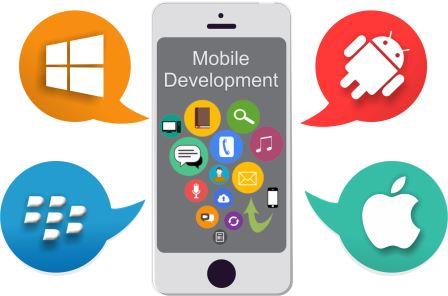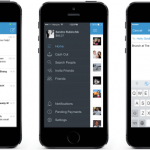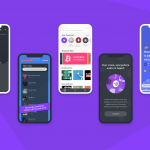How SMBs Should Approach App Development
April 19, 2016

Sometimes it seems like every business in town is building an app. But small and medium-sized businesses (SMBs) need to decide whether it really makes sense. Here are the basic questions you should ask yourself as you consider making that investment.
1: Should I Make An App?
It really depends on the business. For example, services-based businesses (attorneys, insurance agents) do not need a native application, as a general rule. Since the majority of their traffic is paid or through referrals and the user experience is simple enough to achieve with a well designed responsive website, the investment in native is not worth the return.
Native applications are best used when there is a user experience that leverages graphic heavy content or the need to access a user’s location or contacts. The main benefits include the ability to load content on the device for a faster experience and enable single-click sharing.
The real difficulty in deciding whether a mobile application is right for a business is an analysis of the current audience and the budget for driving adoption of the new product. For the majority of small businesses, from restaurants to retail and coffee shops to fitness studios, a well-designed responsive website can provide the same quality of experience as a native application while maintaining all of the marketing benefits such as tracking traffic sources and reduced barriers to engagement thus reducing drop off rates.
2: How Much Should I Pay For it?
That depends on who you use. Some shops charge large upfront fees for discovery and design. This process can take three to six months and cost more than $ 100,000. This is often just a waste of time and money. Building a quality application in today’s environment should not take more than 3 months and cost more than $ 100,000. Hence the reason why months of design and discussion are a waste if you can get to market and learn during the same period, at the same cost.
The ideal budget is to identify the platforms (iOS, Android, Responsive Web) then establish a budget for a dedicated team to support the product for 24 months. Not having the budget to do more than just launch puts a lot of pressure on getting it perfect with the first version—which rarely happens.
As an example, you should have a minimum of $ 500,000 to support your mobile team over two years assuming they will be continuously evolving the product. If you just need a single build to set and forget, you don’t need this budget or a native application; instead, just build a responsive website for $ 20,000 and pay as you go for changes.
3: How Do I Find The Talent?
It’s a safe bet that many SMBs who might benefit from having a mobile app or apps do not have the time, inclination, or necessary in-house resources to do this on their own. Don’t worry, there are a range of options out there for getting this done.
If there’s one thing I’ve learned from all my work in mobile, full-service agencies are a better option for any size business than trying to piece together the work of multiple vendors. It’s simply too hard for a company without the internal expertise to manage it effectively across several different relationships.
The main risk in working with these full-service agencies is that they tend to overcharge for the upfront analysis and management hours before they get down to the engineering. Keep in mind that the best full-service development shops will give you a solid assessment of your needs and the costs associated with delivering a product before sending you a bill.
So how should you go about finding a full-service agency? There’s only one reliable way: referrals. Talk to people that have worked with companies they trust. Don’t EVER go in cold.
4: What Are The Top Mistakes To Avoid?
There are two main mistakes to avoid: Never build without a business plan in place to support the product (from marketing to engineering) with sufficient time to build this product into a profitable unit of the business. And Never build without an effective customer acquisition plan in place.
It is not the field of dreams. There are literally millions of mobile applications in the store. Don’t build it if you don’t have a plan to market it.
Business & Finance Articles on Business 2 Community
(14)













